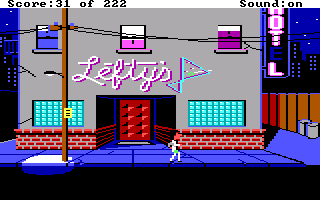I didn’t like my response to this tweet the other day — it was sarcastic and defensive and lacking in respect for Erin, the other conversants, and the actual topic they were discussing.
https://twitter.com/erinaleach/status/740983569615556608
I wanted to reflect on why I reacted that way, and what a more nuanced thought-out response would be.
I’ve been a cataloger (professionally) for about a year. Before that the only cataloging I did was in a classroom setting. I need to remember that I’m coming from a place of still being wet around the ears and rah-rah-rah excited (in a naive pollyannish way) about my profession, peers, and work. Others who have years of experience under their belts probably know a lot more about what ‘it’s like’ than I do.
Another thing I need to stay cognizant of is that I’ve missed a lot. Sure, library school’s cat ‘n’ class courses do a bit of the history of how and why we got to where are today, but there’s only so much time for that. We didn’t cover (and I’d argue can’t adequately explain) the sheer amount of print and digital ink spilled over the current rules. When I learned the MARC standard, there wasn’t a lot of room to mention the history of every field and subfield, discuss the changes, and why things were changed.
It’s something I get very aware of when I ask about a ‘wrong’ cataloging entry on twitter and someone responds that it was correct at a time. What may strike many as needless rules lawyering and arbitrary changes from AACR2 to RDA strikes me as the normal way of doing things because I only learned RDA. Again, this is not to cast aspersions on my lib-school. They did a great job trying to teach us the current cataloging standards and still impart the terminology and rules of yore so that we could be aware of them. I know about the rule of three, and various abbreviations used in AACR2 — but it’s always been in the context of ‘we don’t do it this way anymore’.
So really the two points I want to remind myself of are the same point. Listen to other catalogers when they talk about the work, because there is history and legacy that you don’t know about, and could value from knowing more about.
The second half, are catalogers pedantic? [for the record, Erin was not quoting her own writing, the quote was from somewhere else and she was responding to it in her writing so please don’t read this as a rebuke directed at her]
When I hear that, it sounds like a criticism — the implication being that catalogers are too focused on the rules qua rules and not enough on serving the users. That’s why it gets my hackles up — because I try to think a lot about the user.
- “Might someone search under this portion of the title? Toss it in a 246 1 3”
- “A patron may want a summary of this resource and its table of contents — go fetch those and add them (or type them in yourself)”
- “People sometimes like to know where a movie was filmed, do the leg work to code a proper 033/518”
All that we do should be for the user — I can’t imagine a more terrifying twilight zone episode than a room full of catalogers discussing bibliographic description and subject analysis only for the camera to pull back and reveal that the world has ended and everyone’s dead.
Perhaps that is the image some have of us. And as I said above — I can’t truly understand the amount of frustration many have felt at cataloging debates and arguments that have gone round and round in the past (and probably continue in the present) but that isn’t what I aspire to, and it isn’t what our profession should aspire to.
I’m not trying to act wide-eyed innocent however, I ‘get’ it. We catalogers probably didn’t fall into this line of work because we aren’t persnickety, detail oriented, rules followers. I am no exception:
https://twitter.com/OpOnions/status/673882544199323648
https://twitter.com/OpOnions/status/694895071943065601
https://twitter.com/OpOnions/status/707219430409936896
Yet it absolutely makes sense to use –Film adaptations under an author’s name for a DVD of their work, and I can easily imagine a user clicking “Grisham, John — Film adaptations” expecting to find all the DVDs in the library which are adaptations of his work, regardless of boxed-sets or singletons.
So then why argue against it Netanel? If you claim to serve the user, why is this your pet peeve? Because we’re not consistent. If some catalogers are using –Film adaptations that way (technically incorrectly) and others aren’t, then how are we helping our users find film adaptations if they can’t know to depend on that heading to point them in the right direction? Its absence may indicate to them the lack of film adaptations in the library’s catalog, even though the library may hold those adaptations.
*whew*
I guess what I’m trying to say is, what may seem like pointless pedantry may still serve the user. I think consistency from catalog to catalog in both description and access is valuable for users. The only way (I can see) to achieve consistency is through the creation and following of rules.
But that also means revisiting those rules! We should never end up cutting off the sides of the roast just because Bubbe used to do it that way. We need to be always evaluating (and re-evaluating) what purpose our rules have and keep the end point (helping the user meet their information needs) in mind.
The other piece I want to point out is data-conformity. Here I mean the machine part. Increasingly, the work catalogers do is processed and parsed by machines who are even more pedantic than catalogers can be. Misplace a semicolon and just see how your php does! (If this is an incorrect joke, please replace it in your mind with one that makes more sense). It may seem weird to structure a date range like this “[1951,1952]” but if the machine receiving the data is looking for dates in edtf it has to be that way.
So.
Fellow cats, let’s talk about our rules, let’s talk about what they’re for, let’s talk about who they’re for, and let’s keep what’s good. Let go of the rest.

















